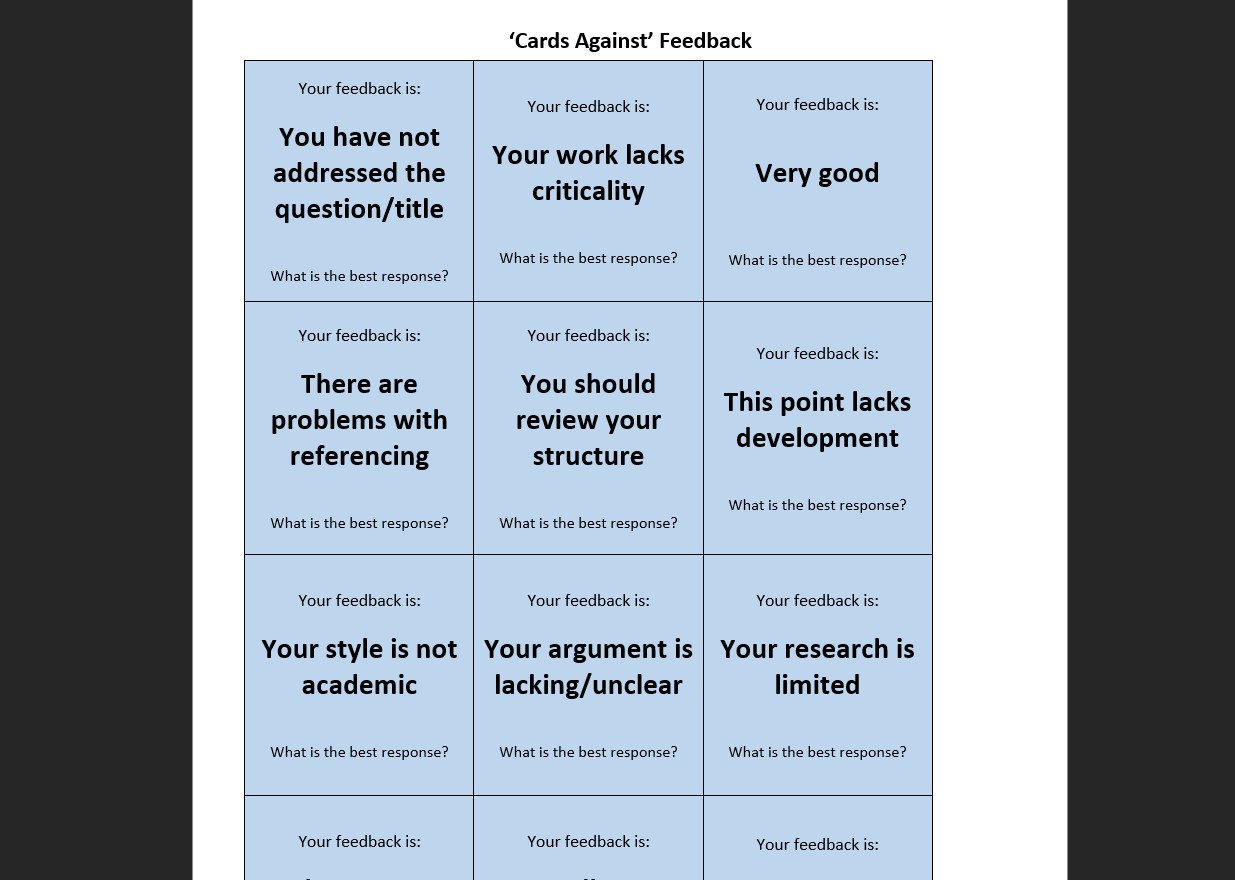This activity was designed for an academic and study skills workshop, ‘Making the Most of Feedback’. This is a game based on the infamous card game ‘Cards Against Humanity’ (but without the extremely offensive content!).
Split students into groups of 3-4 (ideally 4). There are 12 blue cards which should be cut up, shuffled, and placed face down in the centre of the table. Each blue card presents a situation related to receiving feedback on assessed work. There are 36 orange cards, which should be cut up, shuffled and dealt out to all students. Each orange card gives a response a student could have to each of the situations on the blue cards. Some are ‘good’ responses, some are ‘bad’ responses, and some are blank so they student can write their own response.
Each student takes a turn at selecting a blue card from the centre of the table. They read out the situation from the card and ask the other students in their group for an appropriate response to the situation. For example, a blue card might read ‘Your feedback is: You have not addressed the question/title. What is the best response?’. The other students around the table then select an orange card from their hand which they think best suits the feedback situation. For example, an orange card might read ‘Re-write the assignment brief in simple / another language to check understanding’, or ‘PANIC!’. Once each student has selected an orange card, they play that card, face up, on the table.
The student who selected the blue card then chooses which orange response card was the best, giving a reason why they think this is the best solution, and explaining how they might go about implementing the solution. The student who played the winning orange card take the blue situation card. Play continues with each student taking a turn at selecting the blue card and judging the best answer from the other students’ responses.
Play is finished when all blue cards have been drawn and won. The winning student is the one with the most blue cards in their possession at the end of the game.



Reviews
There are no reviews yet.